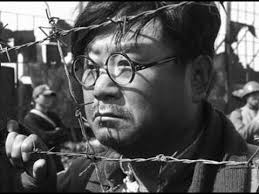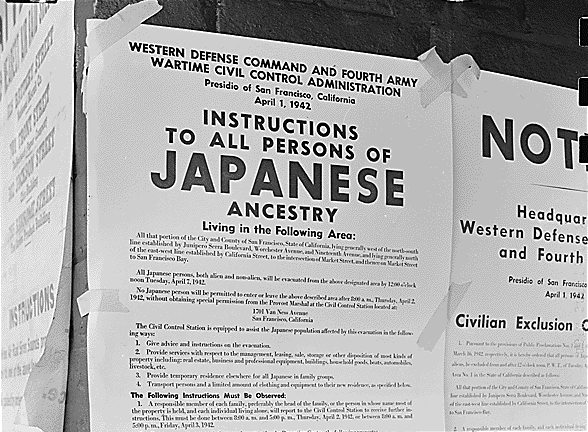
How could this have happened? What events allowed our president to issue Executive Order 9066 and what allowed the American public-at-large to be okay with that? This incredibly dark time in our nation's history seems often glossed over. Why? We are embarrassed. We should be. We treated other human beings, a majority of them citizens, in an exorbitantly unacceptable manner, and for what? The short answer could be national security. In addition, the
San Francisco News covering the events at the time said the whole purpose was of military necessity, a concept discussed in the Michael Walzer piece,
Just and Unjust Wars. Regardless, it is worth the investigation as to what makes Americans willing to put their morals aside for security.

Early contemporary philosophers, such as Hobbes and Locke, discussed giving up freedom for security within the theory of the social contract. That is to say, the masses give up certain freedoms and privileges for security provided by the governing body and for a functional civilization in general. Citizens give up the right of self-preservation and self-defense and delegate it to government. The government then is supposed to act objectively and impartially when acting as an agent of those rights so that not every member of society acts as their own judge, jury, and executioner. Society as a whole is able to function because we delegate these rights to our government.

It gets a bit tricky when the government oversteps that delegation and starts acting in fear or spite. At one time a portrayer of security, our government, following the attacks on pearl harbor, acted hastily and decided that these Americans who happened to be of Japanese ancestry were no longer worthy of the rights afforded them by our country's founding. There was almost no evidence supporting the reasoning behind the internment. These Japanese-Americans were forced to move from their homes on suspicion of overt loyalty to Japan or being spies for Japan. Most of them were completely loyal to the United States, but the possibility of the threat was enough to put civil liberties aside and force these Americans into captivity.
Even the possibility of a threat to national security put an entire ethnicity at odds with the "American" public. The concept of military necessity has been used for years as a justification of unjustifiable acts, as we can see in this case. We must not get so caught up in protecting the security of one person that we jeopardize the human rights of another. Hopefully we have learned from this grave mistake and can move forward into the future of international relations without the fear of complete cultural discrimination of this magnitude again.

No comments:
Post a Comment